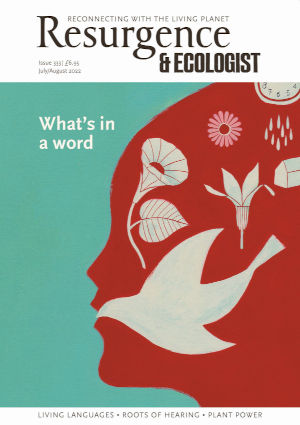Stefano Mancuso is an Italian botanist and a leading authority on plant neurobiology. His work has been considered controversial by some in the scientific community. It may not be surprising then that he has written a book calling on us to recognise the intelligence of plants and grant them greater status. This intriguing book treats plants as though they were part of a nation: the nation of plants.
The subtitle of the book gives immediate insight into what we might expect. It is an exposition of a radical manifesto in which plants give humans advice on how to survive. Mancuso introduces the text by postulating eight fundamental pillars on which the life of plants rests. He calls this the Bill of Rights of the Nation of Plants and claims that the pillars were “suggested to me by plants themselves”, given his familiarity with “these dear fellow travellers”. At this stage, with hints of talking/listening to plants, some readers might be tempted to put the book down, but I would urge them to read on. Mancuso has been described as a ‘world changer’: wise readers should prepare to be changed.
Each chapter of the book addresses a different ‘article’ of his manifesto, and it is here that Mancuso’s expertise in plant intelligence shows itself. After setting the tenor of the book in Article 1 by considering what our lives would be like if plant life were to become extinct, the remaining articles address elements of a plant-based democracy. Issues include sovereignty for living beings, the rights of natural communities, the rights of future generations, guarantees of clean water, soil and atmosphere, and the fostering of mutual aid among natural communities. Whilst this approach is playful, sound science is embedded throughout and is expressed in accessible and accurate language. Some sections are more challenging than others, but it is worth persisting and, more importantly, spending time reflecting on Mancuso’s message.
The epilogue to the book purports to be an ‘Address to the United Nations General Assembly’ by the representative of the new Nation (of Plants). The nation speaks as the oldest and most populous on Earth. This humorous make-believe serves to remind the reader of the threats to the planet and the critical contributions that plants make to sustainability. “Use us better immediately.” The speech calls for us all to “wrap every possible surface in plants”!
I gripe over a couple of issues. Article 5 comprises commendable discussion of the carbon cycle and the role of plants in helping to reduce levels of atmospheric CO2. Unfortunately, that gas is presented as CO2 throughout the chapter. Was this work not proofread by anyone? Sadly, it diminishes the credibility of the chapter’s content. Similarly, in Article 6, reference is made to the famous 1972 book The Limits to Growth. Throughout that chapter, the book is referred to as ‘The Limits of Growth’. It is listed correctly in the bibliography, but that work was such a pivotal text of its time that this error is unacceptable.
There is no doubt that this book is provocative, but it entwines environmental and plant sciences in a radical way that stimulates thought and reflection. At times some content is expressed tongue-in-cheek, but the quality of writing is so articulate that the reader is compelled to give more respect to plants even if they might not be swayed by the manifesto. If this book changes people’s perceptions of the contributions of plant life to Earth and to us humans, then it will serve us well.






